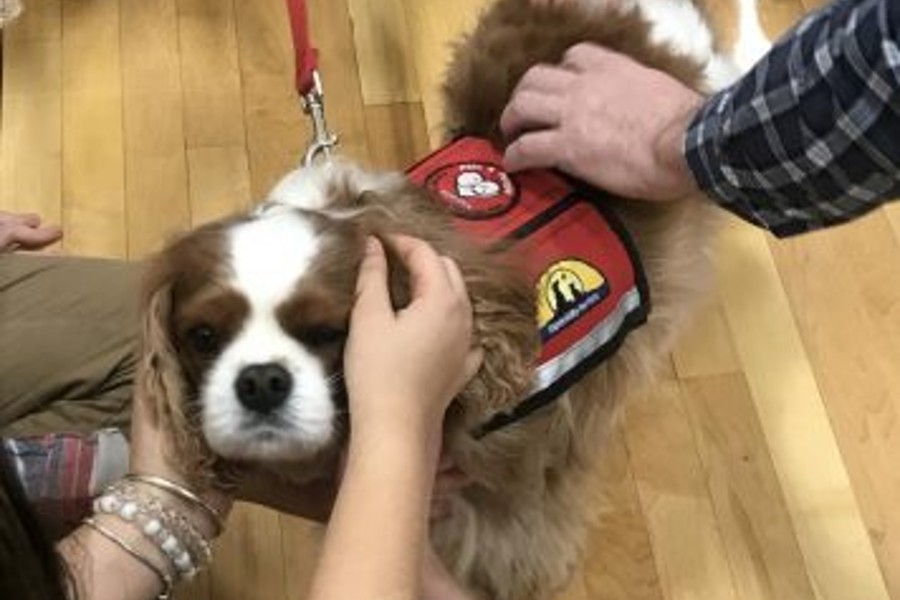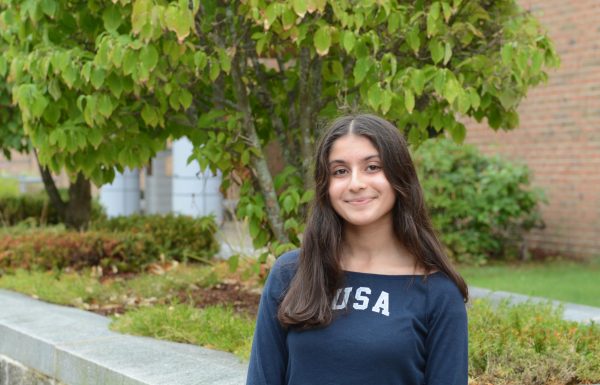WA plans to add new fluffy member to staff next year
A therapy dog that came to calm WA students during 2020.
May 30, 2023
After conducting research and talking with administration and superintendent Dr. Christopher Chew, WA will have a therapy dog beginning in the 2023-2024 school year. This was an initiative made by WA alternative education teachers Lauren Doucette and Tracy Murphy.
The organization that WA will receive the therapy dog from is called Educated Canines Assisting with Disabilities (ECAD), which is an organization that specializes in training service dogs. WA will get a facility dog, which is a type of service dog that has been trained for the same number of hours as a service dog. The difference between a facility dog and a service dog is a service dog is dedicated to one person whereas this dog will be for everyone in the school.
“The dog is going to be so well trained. They’re basically trained to sit and wait for you to do a command, and we’re going to go down and spend some time learning all the different commands.” Murphy said. “It’s not going to be a dog that we’re just going to get and try to train ourselves, it will be very specialized.”
The actual dog that will be at WA has not been determined yet, however it will either be a Labrador or a Golden Retriever.
“Because the dogs are all still training, […] we have to go down [to ECAD] [so that they pair us] with a dog,” Doucette said. “So we still have to go through that process, but we’re hoping that will happen during the summer.”
The decision to have a therapy dog at WA came after Doucette and Murphy saw research showcasing how having a dog can positively impact mood and provide calming effects on the body.
“There’s been so much research about how positive it is to have a therapy dog, [so we] decided to try to add one to the staff,” Doucette said. “It will be a full time working dog and it will be here everyday, and I think it will just be a really positive support for the school.”
One problem that has arisen is students being allergic to dogs, or not liking them in general.
“I’m allergic to dogs, and having a dog at school would be pretty hard for me,” sophomore Juliette Travassos said. “Around dogs I get really tired, my eyes swell up, and I feel like I’m sick. […] I think it’s a cool idea and it would probably be great for some people, but I just feel like there’s a whole medical side to this that’s being overlooked.”
Murphy believes that the way to combat this is to keep the dog in one of the alternative education classrooms. The dog will initially stay in those classrooms, and once they see how it goes, administration will let it be around other people but still keep it in areas where it could be avoided. Murphy and Doucette will also speak to other schools that have had dogs to see what problems they have experienced, helping them to prevent these issues from happening here at WA.
“I think we have a lot to learn and it’s a process,” Murphy said. “I feel like we’re just at the very beginning steps of this, but I am feeling good about it.”









